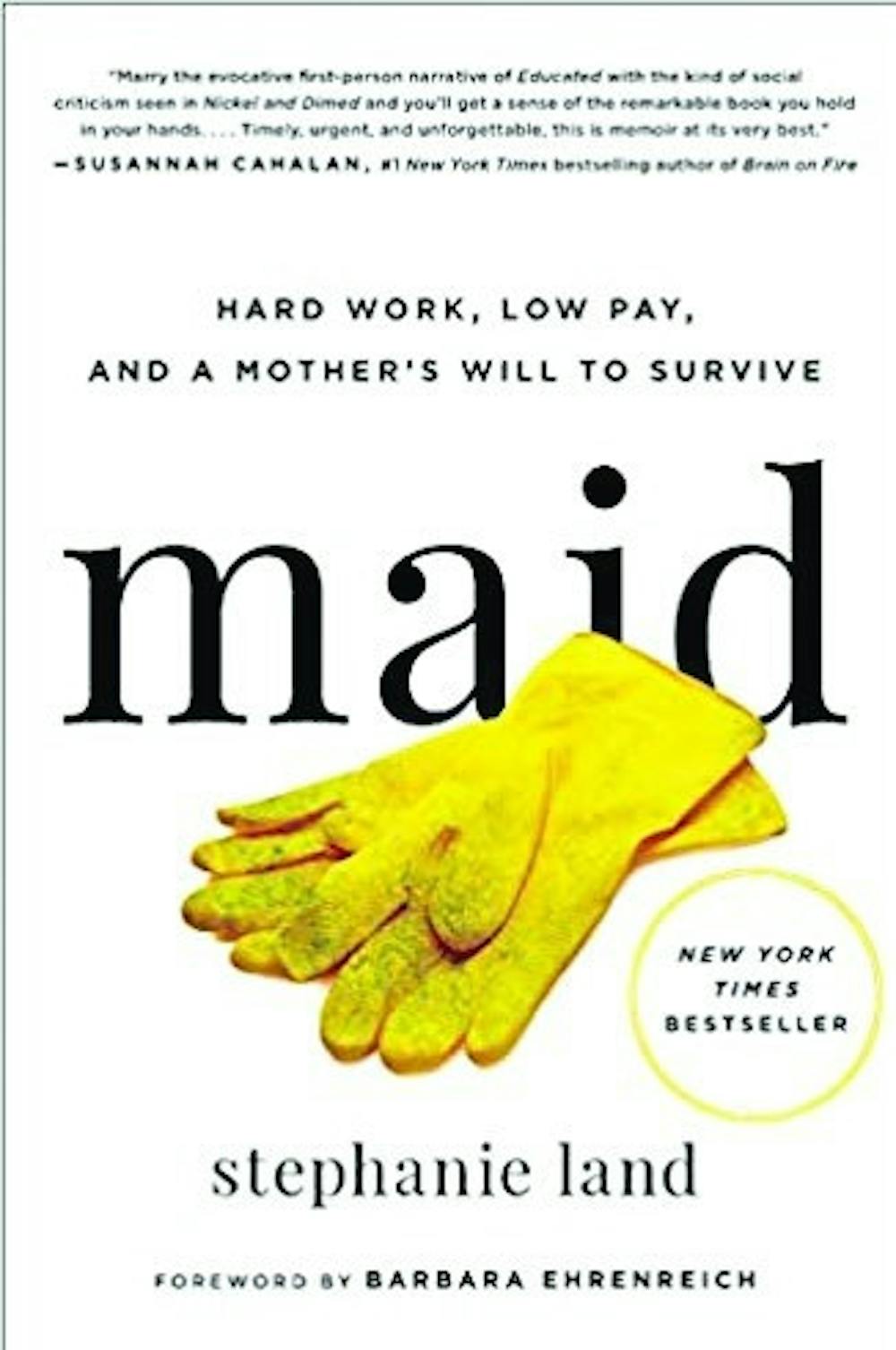Stephanie Land has an amazing talent to pull at the heartstrings of her readers. “Maid: Hard Work, Low Pay, and a Mother's Will to Survive” is a memoir, following Land in her first few years of motherhood while she tries to figure out how to keep herself and her daughter afloat with no help from her ex or her family. The first line, “My daughter took her first steps in a homeless shelter,” just hooked me and I couldn’t put it down.
Land had grown up in a middle-class household with her parents and her brother. While she was applying for college, taking pride in the fact that she would be the first in her family to go, she finds out she is pregnant. Even though she barely knows the father, she loves the idea of being a mother and starting a family, so she puts college on hold. After she becomes pregnant, her boyfriend grows more and more abusive, and it doesn’t end when their daughter, Mia, is born.
Although her boyfriend was abusive, her family didn’t seem much better. When she and Mia moved in with her father, the father wanted them out quickly. This caused a rift between her father and stepmother, and she discovered that her father was abusing her stepmother. Her stepfather calls her “entitled” when she couldn’t pay for lunch after moving out of the homeless shelter, and her mother won’t spend time with her unless the stepfather is invited as well.
The biggest part of the book, obviously, was Land’s time as a maid. She worked for two cleaning companies, at one point working for both at the same time, and found her own clients. She had to find her own transportation and her own cleaning supplies, and her bosses were furious if they had to pay her overtime. She saw houses with stacks of porn, tons of flowers, lots of dogs, horrific toilets (that almost caused her to quit) and endless bloody pads and tampons.
Most of the chapters in the middle of the book focused on what she thought of the homeowners, what she believed they thought of her, and what the House came to teach her about herself or other people. There were people who just called her “maid” and never bothered to learn her name; others would learn her name and her daughter's name and become aware of what was happening in her life. Some would just avoid human contact with her all together despite the fact that she was cleaning the most intimate parts of their lives, while there were others who would invite her to have lunch with them.
All while this is happening, Land is trying to get full custody of her daughter, as her ex has Mia every other weekend. Meanwhile, she struggles to stay out of the homeless shelter despite working 60-hour weeks and being on seven different government aid programs. She never wants people to know that she’s on these programs because, as Land puts it, “How would they view a cleaning lady on food stamps? As a hard worker or a failure?”
I would recommend this book for anyone who likes a memoir, likes reading about social issues or anyone who has a maid or has come into contact with a maid. It is beautifully written, and half the things she writes I could not believe were true. I can gladly say there is a good ending to this, and readers can see how Land is doing on her social media pages, which make it feel like the story never really ended.














